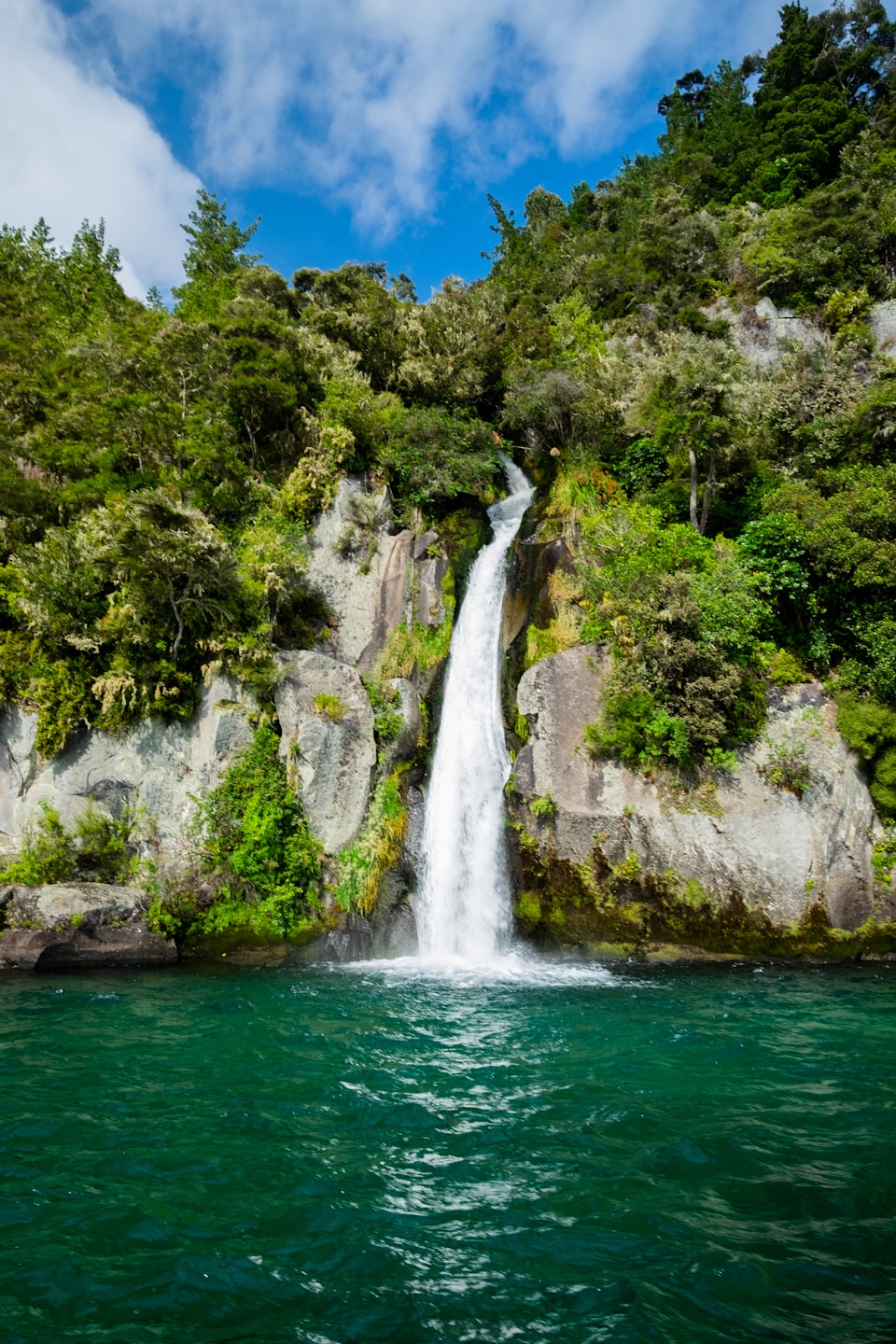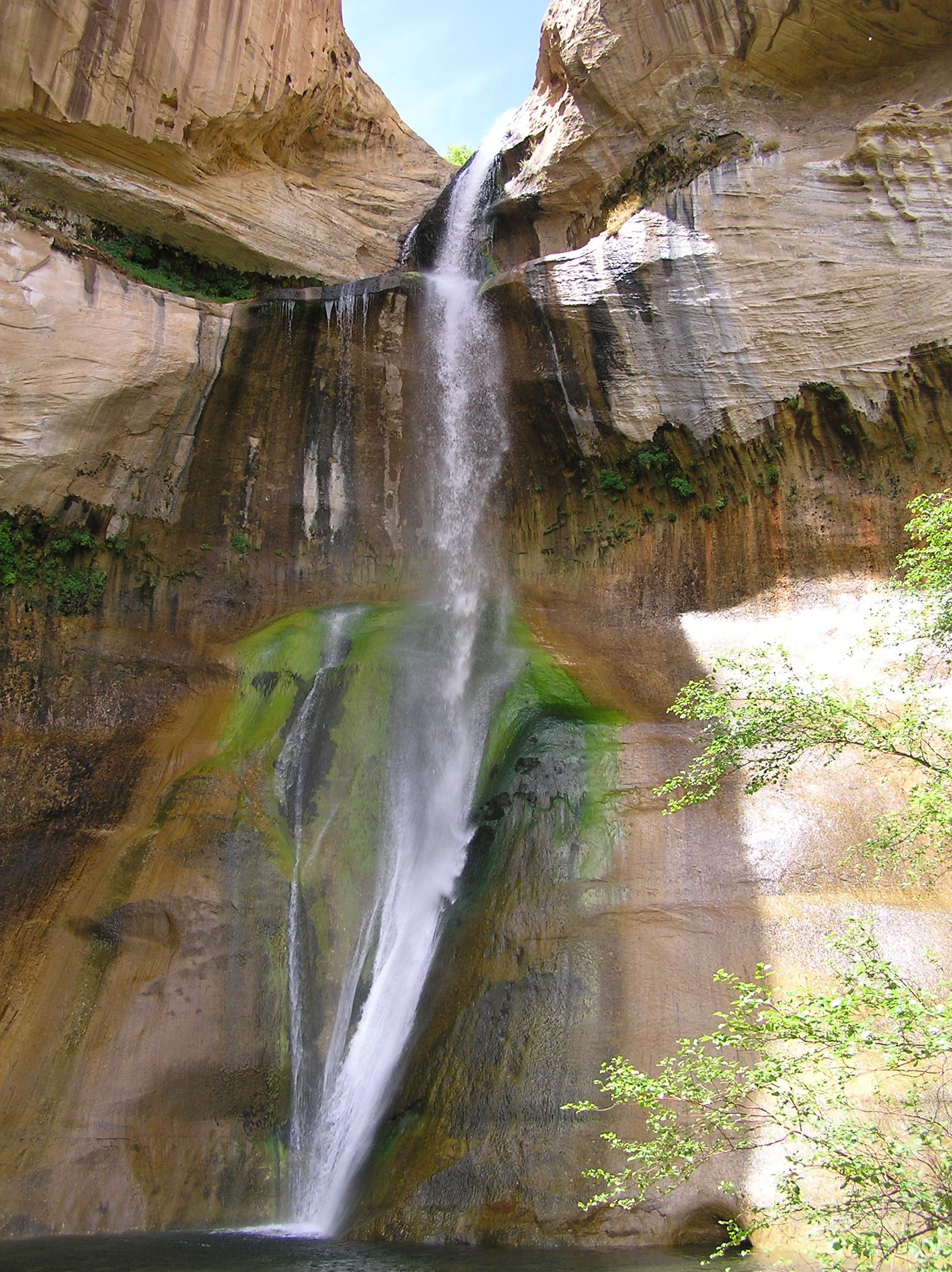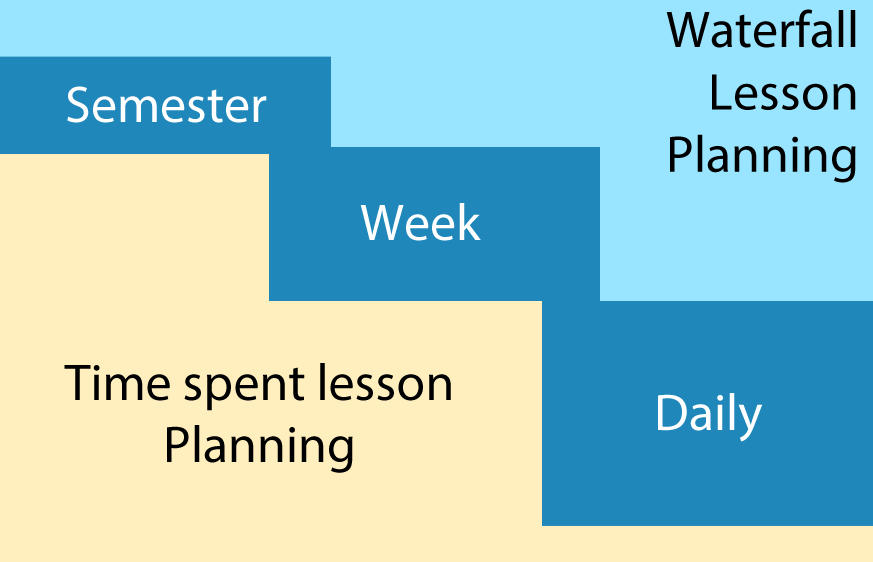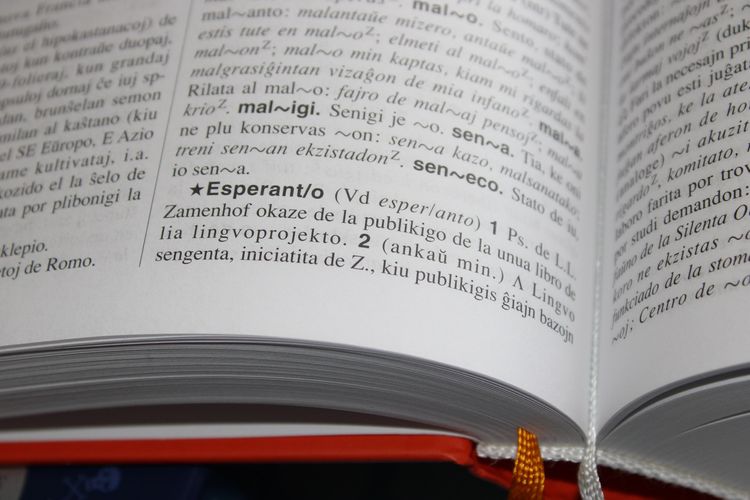Waterfall Lesson Planning

Waterfall Lesson Planning
[Adapted from a post I made on another blog a few years ago.]
I often have the opportunity to sit on a panel of experienced teachers [1]. Being on panels like this where novice teachers [2] ask questions about teaching is always an enlightening experience. It makes me reflect a lot on my past teaching experiences. I’m also occasionally lucky enough to have a brilliant description of a rather obvious process leave my mouth. One of the teachers asked the panel about lesson planning. I thought of my approach to lesson planning and opened my mouth. In that moment, I named my process the Waterfall Approach. It’s a process I’ve used for a long time but never named.
Waterfalls are beautiful sites. The fluid mechanics involved and the mark they leave on the terrain are incredible. A few years ago, I went to. You can’t get to the falls by car—you take about a three mile hike to get to the bottom or last of the falls.

I’ve never been to the top, but there is a small pool. When it is full, the overflowing [3] water creates a waterfall. This is the approach I like to take when lesson planning.
Life as a teacher is easiest for me when I first do all of the lesson planning possible at the beginning of the semester—actually before the semester begins if possible. The semester pool is very deep, so I try to do as much planning and prep as possible. What doesn’t fit flows into the smaller weekly pools. I try to set aside a time each week to plan for the next week. At this point, you might be thinking if there is anything that spills over into the daily pool. By now I’ve put so much effort into my classes that I can use the daily pool to customize the lesson based on the needs of the class. I’ve found that moving as much planning as possible to the beginning of a semester cuts down on stress and burnout and increased the quality of my teaching.
My image below probably needs some tweaking, but hopefully it represents my approach. The sand or dirt represents the time I spend lesson planning. If I spend a bunch of time at the beginning then my weekly and daily lesson planning time decreases.

It might not work for everyone, but it’s an approach that helps me.
[1] As much as I would like to talk about what makes a teacher “experienced,” I’ll save that for a later post.
[2] We’ll have to define “novice” sometime in the future, too.
[3] It’s always overflowing—all year long—you can create your own symbolism for that.


